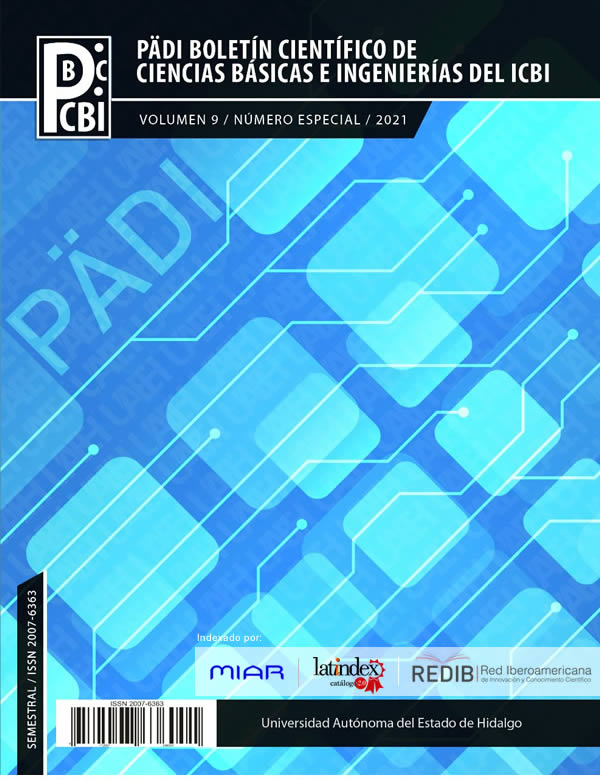Enseñanza remota de emergencia durante la pandemia de Coronavirus
Resumen
Debido a los brotes de COVID-19 en el mundo, las instituciones educativas se han visto obligadas a suspender la enseñanza presencial como una forma de mitigación contra el riesgo de contagio que representa el coronavirus. En consecuencia, las instituciones de educación superior han tomado diversas medidas para implementar estrategias de enseñanza en línea seguidas de una rápida transformación del diseño de sus clases. En este estudio se trabajó bajo el concepto de enseñanza remota de emergencia en una universidad del estado de Sonora, México basada en el modelo de evaluación CIPP de Stufflebeam para evaluar el contexto y el insumo de la asignatura de Estadística Descriptiva. Como resultados se obtuvo la cuantificación de dedicación a sus estudios por parte de los estudiantes, el tiempo disponible de uso de cómputo para las clases sincrónicas y las asignaciones posteriores, además del estado emocional relacionado con la Covid-19 que pudiera afectar su estado de ánimo durante el ciclo escolar.
Descargas
Citas
Armstrong-Mensah, E., Ramsey-White, K., Yankey, B., & Self-Brown, S. (2020). COVID-19 and distance learning: effects on Georgia State University School of Public Health students. Frontiers in Public Health, 8. https://doi.org/10.3389/fpubh.2020.576227
Crawford, J., Butler-Henderson, K., Rudolph, J., Malkawi, B., Glowatz, M., Burton, R., Magni, P., & Lam, S. (2020). COVID-19: 20 countries’ higher education intra-period digital pedagogy responses. Journal of Applied Learning & Teaching, 3(1), 9–28. https://doi.org/10.37074/jalt.2020.3.1.7
Eder, R. (2020). The remoteness of remote learning. Journal of Interdisciplinary Studies in Education, 9(1), 168–171. https://doi.org/10.32674/jise.v9i1.2172
Gall, M., Gall, J., & Borg, W. (2007). Educational research and introduction (8th ed.). Nueva York: Pearson.
Hernández-Sampieri, R., & Mendoza-Torres, C. P. (2018). Metodología de la investigación. Las rutas cuantitativa, cualitativa y mixta. McGraw-Hill.
Kerlinger, F., & Lee, H. (2002). Investigación del comportamiento. Métodos de investigación en ciencias sociales (4ª ed.). McGraw-Hill.
Liguori, E. & Winkler, C. (2020). From offline to online: challenges and opportunities for entrepreneurship education following the COVID-19 pandemic. Entrepreneurship Education and Pedagogy, 3(4), 346-351. https://doi.org/10.1177/2515127420916738
Reich, J., Buttimer, C. J., Fang, A., Hillaire, G., Hirsch, K., Larke, L. R., Littenberg-Tobias, J., Moussapour, R., Napier, A., Thompson, M., & Slama, R. (2020). Remote Learning Guidance From State Education Agencies During the COVID-19 Pandemic: A First Look. https://doi.org/10.35542/osf.io/437e2
Stufflebeam, D. (2003). The CIPP model of evaluation. En T. Kellaghan, D. Stufflebeam & L. Wingate (Eds.), Springer international handbooks of education: International handbook of educational evaluation.
Stufflebeam, D. L., & Coryn, C. L. (2014). Evaluation theory, models, and applications. Wiley.
UNESCO. (2021). COVID-19 impact on education. https://en.unesco.org/covid19/educationresponse
Wang, C., Cheng, Z., Yue, X., & McAleer, M. (2020). Risk management of COVID-19 by universities in China. Journal of Risk and Financial Management, 13(2), 36. https://doi.org/10.3390/jrfm13020036
Zhang, G., Zeller, N., Griffith, R., Metcalf, D., Williams, J., Shea, C. & Misulis, K. (2011). Using the context, input, process, and product evaluation model (CIPP) as a comprehensive framework to guide the planning, implementation, and assessment of service-learning programs. Journal of higher education and outreach engagement 15(4), 57 – 83. https://files.eric.ed.gov/fulltext/EJ957107.pdf












